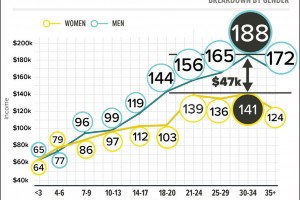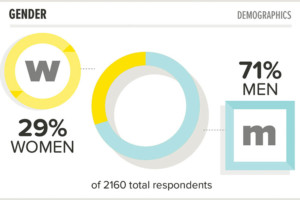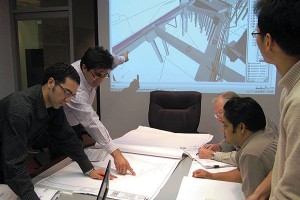Regardless of your familiarity with Quality Based Selection (QBS), there are certain basics of business that all engineers should understand, even if you are not in management. Structural engineering is a professional service business. The overwhelming majority of structural engineers are compensated based on the amount of time spent on a client’s project. If you are a business owner, you know that each and every proposal starts out with the question “How much time will the project take?” …
Review Category : Professional Issues
Structural Engineering Engagement and Equity (SE3) Committee Survey Results
In Part 1 of this series (STRUCTURE, April 2017), the results of the 2016 SE3 Study focused on overall career satisfaction, development, and advancement. This article highlights survey findings regarding compensation, overtime, and the gender pay gap. A full report that includes findings on work-life balance, flexibility benefits, and caregiving can be found at SE3project.org/full-report. …
Structural Engineering Engagement and Equity (SE3) Committee Survey Results
The mission of the Structural Engineering Engagement and Equity (SE3) Committee of the Structural Engineers Association of Northern California (SEAONC) is to study and improve engagement and equity in the structural engineering profession. In early 2016, SE3 administered a nationwide survey of practicing and formerly practicing structural engineers. …
There is a disturbance in the Force. Can you feel it?” This quote can be applied to many different subjects in the universe, including what is going on in the construction industry here on earth. We do not have floating cars and diplomatic robots fluent in six million languages yet, but the construction industry is being transformed like never before. While there are sure to be growing pains along the way, it is also an exciting time to be in the industry. …
In 2016, many organizations launched resiliency initiatives making “resilience” the new buzzword. In the building and infrastructure industry, resilience is defined in many ways. In 2014, the ASCE/SEI Sustainability Committee defined resilience as the ability to suffer less damage and recover more quickly from adverse events. These adverse events are not only external shocks in the form of natural or man-made disasters (hurricanes, floods, earthquakes, etc.), but also economic, social, political, and cultural adverse events that could damage the framework of a community. Today, this also includes the effects of climate change and the resulting rapid increase in the frequency of external shocks. …
Increasingly, the design and construction industry is relying on Building Information Modeling (BIM) to conceptualize, plan, detail, create, and guide the building of structures. As a result, the industry as a whole is moving toward more efficient processes. Surprisingly, structural calculations have not evolved in the same way. …
…and Why We Need More Women in Design and Construction
In August 2015, The American Society of Civil Engineers (ASCE) finally recognized Nora Stanton Blatch Barney as an ASCE Fellow, 110 years after she graduated from Cornell with a Civil Engineering degree and 99 years after the ASCE Board of Directors turned down her application for membership (reference blogs.asce.org). …
The world needs great leaders. We need better leaders in our government, in our companies, in our associations and organizations, and in our committees and teams. There are many articles and books published on leadership, but this article is based on my thirty years of working with structural engineering offices, associations, and committees. I have seen firsthand the many opportunities that are available where engineers can demonstrate leadership. …
This is the second of a two part series that draws attention to Young Member Groups. The first article “Rainbows Only Come After Rain” by Ellen (Chuan-Hua) Kuo PE, LEED AP.BD+C was published in the February, 2015 issue of STRUCTURE.
Why are Young Member Groups Important?
A Young Members’ Perspective by Sofia Zamora, E.I.T.
The extent to which industries train market entrants and have established recruiting procedures varies from industry to industry. …
A Look at Preserving the Future of Structural Engineering
“If you like solving puzzles, this is a profession you can enjoy doing it and be paid for it. You build things that last a century. Much more rewarding than practice of Medicine and Law. And you can do this way past retirement and keep enjoying it.”
“Stay out of this career. Too many long hours, high stress and nobody cares… My wife hates me, and my kids don’t know me. Nobody should have to work this much in life. If it paid a lot of money, that’s one thing… but it doesn’t. If you’re considering structural engineering… you’re a bright individual… use your brain to do something else.”







